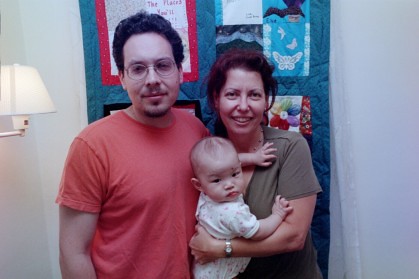🦋 Spanish Ethnicities
La Pasionaria addressed her July 19, 1936 call to arms to "people of Catalonia, the Basque country and Galicia, and all Spaniards." I'm curious about the ethnic distinctions: I know "Basque" is a different group from "Spanish," different language and all; and I had some idea that there is a distinct dialect of Spanish called Catalan , and that some Spaniards think of Catalonians as a separate group. My first clue that there might be a distinct Galician ethnicity came when I was reading The Year of the Death of Ricardo Reis, and group of characters was identified as coming from Galicia , and that some Spaniards think of Catalonians as a separate group. My first clue that there might be a distinct Galician ethnicity came when I was reading The Year of the Death of Ricardo Reis, and group of characters was identified as coming from Galicia -- but there it sounded more like the kind of kinship people might feel from having the same hometown, without it necessarily distinguishing them strongly from people from the next town over. -- but there it sounded more like the kind of kinship people might feel from having the same hometown, without it necessarily distinguishing them strongly from people from the next town over. So, well, I'm wondering why Ibárruri chooses these regional identifiers. Galicia is the northwestern corner of Spain, Basque country is along the northern shore, Catelonia is in the northeast. Are all the southern and central portions of Spain ethnically homogeneous, distinct from these three? Ibárruri was a Communist, and I would have thought drawing these distinctions would not be in keeping with her ideology; but that's just off the top of my head.
 The Wiki article on Nationalisms and regionalisms of Spain has some information that seems useful.
posted morning of Tuesday, August 26th, 2008
➳ More posts about The Passionate War
➳ More posts about Readings

I don't know much about Spanish ethnicities, but I do know that European ethnicities are old and settled. Most European nation-states weren't unified until the 18th or 19th centuries, and they have official cultures and languages, which of course leads to resentment from the ethnic groups who aren't officially supported--Spain has two or three separatist movements, even now.
posted afternoon of August 26th, 2008 by Randolph

The Wiki article I linked talks about how Spain was formed out of pre-existing kingdoms in Iberia -- it sounds vaguely similar to the accretion of Germany around Prussia. (Though it occurred much earlier, in the 1600's.) Apparently the current constitution of Spain accords different levels of separate identity to various regions, including the three mentioned in this post, and different movements in the regions for national and regional separatism. The article even mentions a Mancheguian separatist movement, which sure tickles my fancy.
(This constitution obviously postdates the time when La Pasionaria was speaking, but it must embody ways of thinking that were contemporary to her.)
posted afternoon of August 26th, 2008 by Jeremy

Or like Garibaldi in Italy. Come to that, there are some similarities with the unification of Japan under Tokugawa. My girlfriend, who knows something of the matter, says that Spain was theoretically unified in the 15th century by the marriage of Ferdinand and Isabella but practically unified in the 18th century.
posted evening of August 26th, 2008 by Randolph
|

